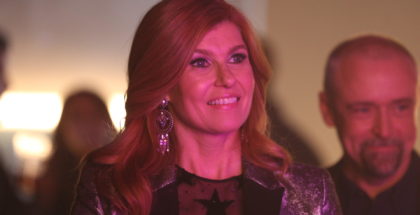UK TV review: Upload Season 2
Review Overview
Cast
8Concept
8David Farnor | On 11, Mar 2022
Warning: This contains spoilers for Season 1. Not caught up? Read our spoiler-free review here.
“Their slogan is ‘don’t be evil, obviously’. But what if it’s ‘don’t be evil obviously’?” That’s an employee realising that a company may not have their people’s best interests at heart in Season 2 of Upload. That it’s a company that has found a way to digitise the afterlife and charge people for it only adds to the pointed satire of the joke.
Greg Daniels’ high-concept series has always been satire more than sci-fi, whisking us not that far into the future to 2033, where people can live on virtually after their death – and the amount of perks their digitally preserved consciousness can enjoy depends on their cash flow. It was timely and prescient then, even as predicted a worryingly plausible future – and Season 2 is even more so, arriving after Facebook has announced plans to build the “Metaverse” where we can live out digital lives. You don’t need to have played Candy Crush to realise that such a worldwide web of online interactions and experiences would come with its own galaxy of micro-transactions.
For all that added timeliness, the second season of Upload benefits from the fact al the groundwork for its impeccably conceived world-building has already been done. We rejoin Nathan Brown (Robbie Amell) as he finds his existence in Horizen’s expensive Lakeview server – paid for by his wealthy girlfriend Ingrid (Allegra Edwards) – interrupted by her apparently joining him in the afterlife. That her family was potentially involved in killing off Nathan – at a point where he was about to release the code that would enable people to make their own afterlife for free – brings a spiky layer to their already dysfunctional dynamic.
As for service rep Nora (the marvellous Andy Allo), with whom Nathan forged an unlikely connection in Season 1, she’s gone off-grid to join the Ludds, a rebellious movement against the whole concept and industry of Uploading. But it’s inevitable that the pair will be drawn back together, and so Nora finds herself returning to Horizen as a mole, just as Nathan finds himself trying to rebalance the privilege on display, by draining the excess data held by wealthy upload clients and handing it off to the poorer users stuck down in the sparse, clinical prison of “2 Gig” – the data-limited tier of the digital afterlife.
Robbie Amell gets better with every episode as Nathan, a self-preening digital bro whose moral conviction keeps growing until he becomes an unlikely Robin Hood figure. Nathan’s development as a character also brings richer complexity to Allegra Edwards’ controlling Ingrid, as she tries to both deceive him and genuinely win back his affection, both things that require her to examine who she is and what she wants.
All this, plus the Nora love triangle, gives Upload enough dramatic juice to boot up the human conflict required for a second season, but Upload 2.0 succeeds because it also ups its sci-fi game to match. There are still the amusing surreal gags that come with the inherently absurd concept, but they’re used in sophisticated ways – the notion of people being able to change their avatars, or hire others to take their place in a VR headset, results in some brilliantly constructed set pieces that see our characters all behaving in unnatural ways while trying to connect with each other on different levels. The cast respond accordingly, producing a mix of humour and surprising pathos. Zainab Johnson, in particular, is a delight as Nora’s colleague, Aleesha, who has to grapple with the idea of having actual chemistry with a dead person, while also juggling corporate and moral responsibility.
The result is an increasingly bold satire that finds a warped digital mirror to reflect our current culture of tech capitalism. It might not be subtle, but its question of how much we retain our identities when we give our personal data over to corporations is as pertinent as ever – and that bleak starting point it’s balanced out by the cheeky, optimistic reassurance that no matter how virtual our lives become, there will always be humans who remember that one’s value isn’t defined by one’s bank balance.



















